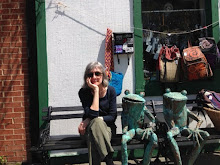Our families are where we do our deepest learning, for better and for worse. Who we are and what we do are shaped by our earliest experiences at home. And even into adulthood, our families influence who we are and what we do. The soul work of spiritual growth must therefore, inevitably, bring us face to face with our family and our family’s “baggage.”
The creator(s) of the Torah understood this truth. It is no coincidence that the formative stories of the Jewish people are family stories. Look at the two dramatic stories traditionally recited on Rosh Hashanah – Abraham’s expulsion of Hagar and Ishmael, and Abraham’s attempted sacrifice of Isaac. Two highly charged tales of near infanticide! (Not familiar with these stories? Check out Genesis ch. 21 and 22.)
Since my mother’s death this June, I have been sorting through many memories as they bubble up. There is something about the mourning period that allows for a heightened awareness of the power of memory, and in some cases the potential for healing. I hope to share some of my reflections on the theme of Memory and Forgiveness over the High Holidays.
The High Holidays themselves are a time for remembering and reflection. We look back, comparing last year’s hopes and aspirations with our present reality. Back in the 1970s, I saved these lines from a poem written by David Clewell, a fellow high school student who went on to become poet laureate of Missouri:
“…Turn out all the lights in the house and casually glance at a calendar.
Circle any day you can see.
Measure from the place where you are standing to the same place one year earlier.
It should not be within walking distance.”
For me, it is important to approach this process of reflection with rachmones (compassion). May we all do our soul work with a greater sense of rachmones not only for ourselves but also for our parents and other family members, who were each doing the best they could at any given moment.
